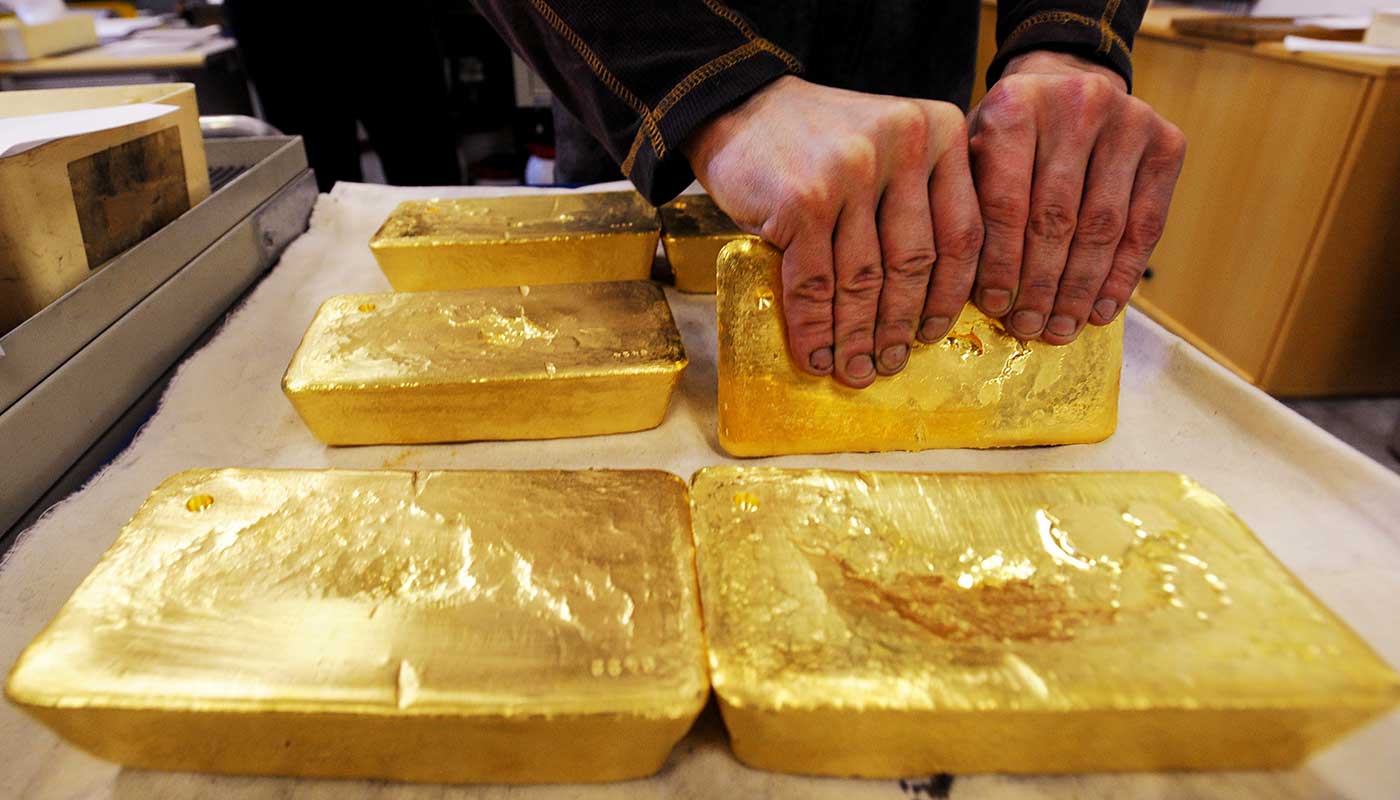Can eight tons of gold save Venezuela from collapse?
Opposition legislator accuses President Nicolas Maduro of raiding precious metal from nation’s central bank

A free daily email with the biggest news stories of the day – and the best features from TheWeek.com
You are now subscribed
Your newsletter sign-up was successful
At least eight tons of gold have reportedly been removed from the vaults of Venezuela’s central bank, as the county veers close to economic collapse.
Opposition legislator Angel Alvarado told Reuters that the gold was “removed in government vehicles between Wednesday and Friday last week”, when there were “no regular security guards present at the bank” and central bank boss Calixto Ortega was on a trip overseas. Three government sources backed up the claim.
According to Alvarado, President Nicolas Maduro plans to “sell [the gold] abroad illegally”, in a last-ditch attempt to raise hard currency amid tightening sanctions.
The Week
Escape your echo chamber. Get the facts behind the news, plus analysis from multiple perspectives.

Sign up for The Week's Free Newsletters
From our morning news briefing to a weekly Good News Newsletter, get the best of The Week delivered directly to your inbox.
From our morning news briefing to a weekly Good News Newsletter, get the best of The Week delivered directly to your inbox.
Venezuela “has been caught in a downward spiral for years, with growing political discontent further fuelled by skyrocketing hyperinflation, power cuts and shortages of food and medicine”, the BBC reports. More than three million Venezuelans have left the South American country in recent years.
The ongoing political and economic crisis appeared to reach a tipping point in January, when opposition leader Juan Guaido proclaimed himself interim president, calling for Maduro’s resignation and fresh elections.
Amid the turmoil, the government is relying on gold reserves to keep the economy afloat. Bloomberg reports that Maduro “blew through more than 40% of Venezuela’s gold reserves last year” in a “desperate bid” to fund government programmes and pay millions to bondholders.
Reuters adds that Abu Dhabi investment firm Noor Capital bought three tons of gold from the Venezuelan central bank in late January, a purchase that was in accordance with “international standards and laws in place” at that time.
A free daily email with the biggest news stories of the day – and the best features from TheWeek.com
Meanwhile, it was reported that a request by Maduro’s officials to withdraw $1.2bn (£909m) worth of gold stored at the Bank of England had been rejected, after US Federal Reserve officials lobbied their UK counterparts to help cut off Venezuela’s government from its foreign assets.
-
 The Olympic timekeepers keeping the Games on track
The Olympic timekeepers keeping the Games on trackUnder the Radar Swiss watchmaking giant Omega has been at the finish line of every Olympic Games for nearly 100 years
-
 Will increasing tensions with Iran boil over into war?
Will increasing tensions with Iran boil over into war?Today’s Big Question President Donald Trump has recently been threatening the country
-
 Corruption: The spy sheikh and the president
Corruption: The spy sheikh and the presidentFeature Trump is at the center of another scandal
-
 Epstein files topple law CEO, roil UK government
Epstein files topple law CEO, roil UK governmentSpeed Read Peter Mandelson, Britain’s former ambassador to the US, is caught up in the scandal
-
 Iran and US prepare to meet after skirmishes
Iran and US prepare to meet after skirmishesSpeed Read The incident comes amid heightened tensions in the Middle East
-
 Israel retrieves final hostage’s body from Gaza
Israel retrieves final hostage’s body from GazaSpeed Read The 24-year-old police officer was killed during the initial Hamas attack
-
 China’s Xi targets top general in growing purge
China’s Xi targets top general in growing purgeSpeed Read Zhang Youxia is being investigated over ‘grave violations’ of the law
-
 Panama and Canada are negotiating over a crucial copper mine
Panama and Canada are negotiating over a crucial copper mineIn the Spotlight Panama is set to make a final decision on the mine this summer
-
 How oil tankers have been weaponised
How oil tankers have been weaponisedThe Explainer The seizure of a Russian tanker in the Atlantic last week has drawn attention to the country’s clandestine shipping network
-
 Why Greenland’s natural resources are nearly impossible to mine
Why Greenland’s natural resources are nearly impossible to mineThe Explainer The country’s natural landscape makes the task extremely difficult
-
 Iran cuts internet as protests escalate
Iran cuts internet as protests escalateSpeed Reada Government buildings across the country have been set on fire